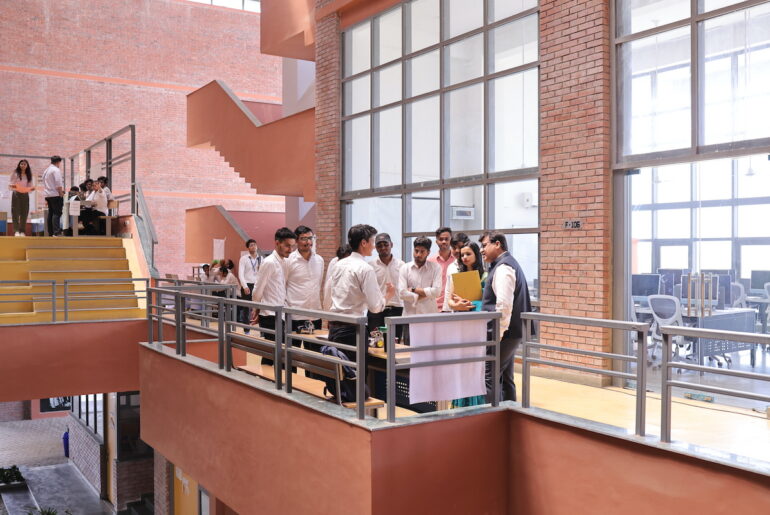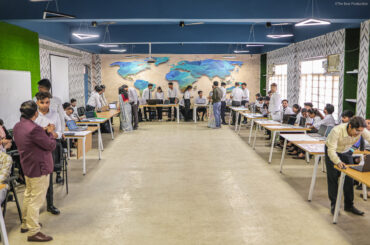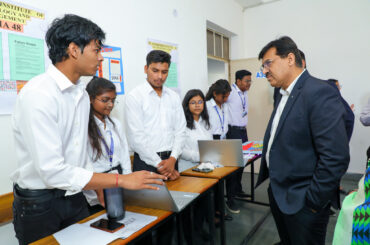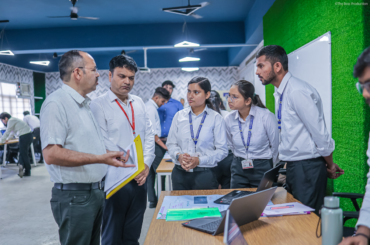CSE Course Details
The Computer Science and Engineering (CSE) course is designed to provide students with a comprehensive understanding of computer systems, software development, and the theoretical foundations of computing. For those seeking in-depth knowledge, exploring CSE course details is essential.
It covers core subjects such as programming languages, data structures, algorithms, computer networks, databases, operating systems, and software engineering. In addition to these, students also delve into advanced topics like artificial intelligence, machine learning, cybersecurity, cloud computing, and big data analytics.
The curriculum is a blend of theoretical and practical knowledge, encouraging hands-on experience through labs, projects, internships, and workshops.
This course aims to equip students with the skills necessary to innovate and excel in the rapidly evolving tech industry, preparing them for careers in software development, systems engineering, IT consultancy, research, and more.
Some of the most opted courses in India and St. Andrews college or different Engineering college or Management colleges are as follows:-
What is Computer Science and Engineering
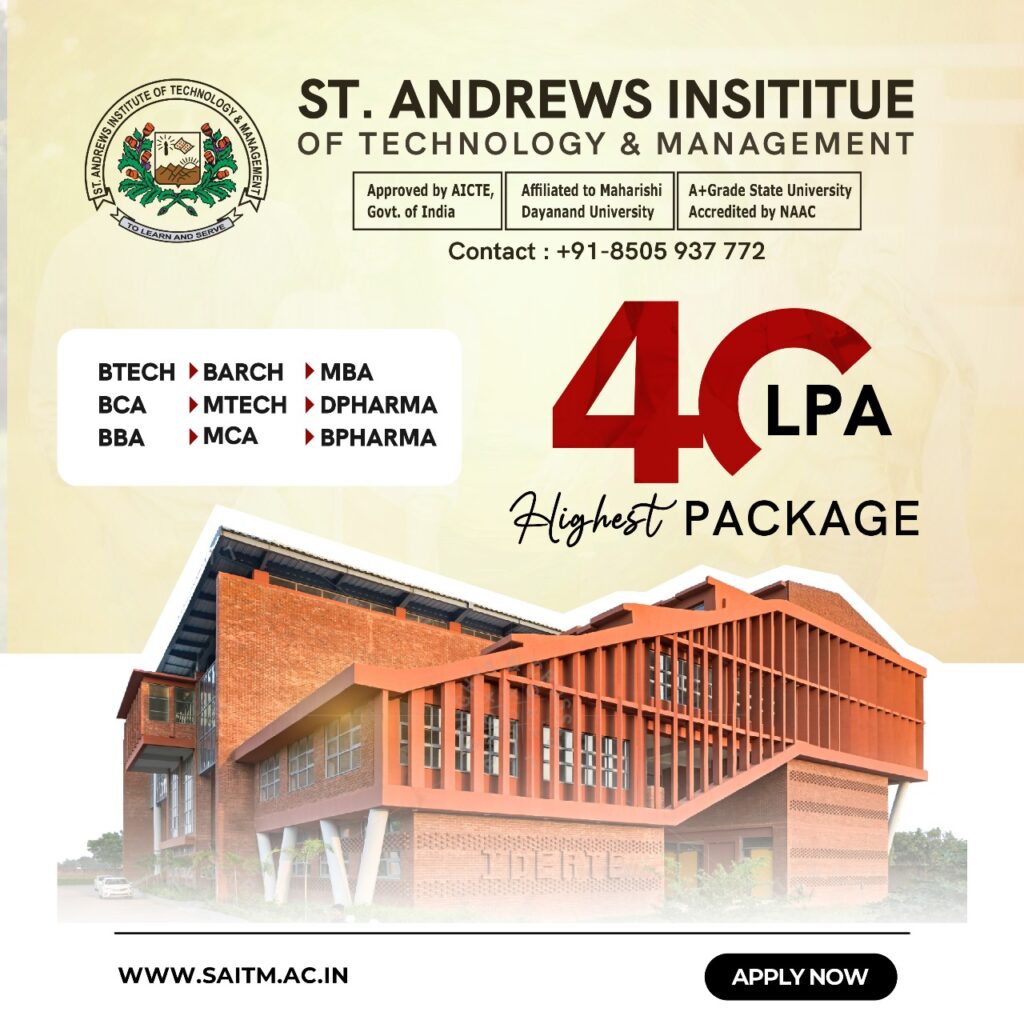
Computer Science and Engineering (CSE) is an interdisciplinary field that combines computer science and electrical engineering to create innovative hardware and software solutions. For more information, exploring CSE course details is crucial.
It encompasses the study of computer science principles, including algorithms, programming languages, data structures, computer architecture, networks, AI, and cybersecurity.
CSE professionals design and analyze software systems, create efficient computational processes, and innovate new technologies. The field also covers the development of embedded systems, operating systems, and application software.
Driving technological advancements, solving complex problems, and enhancing industries like healthcare, finance, and communication, CSE is a cornerstone of modern technological development.
Importance of Computer Science in Modern Era
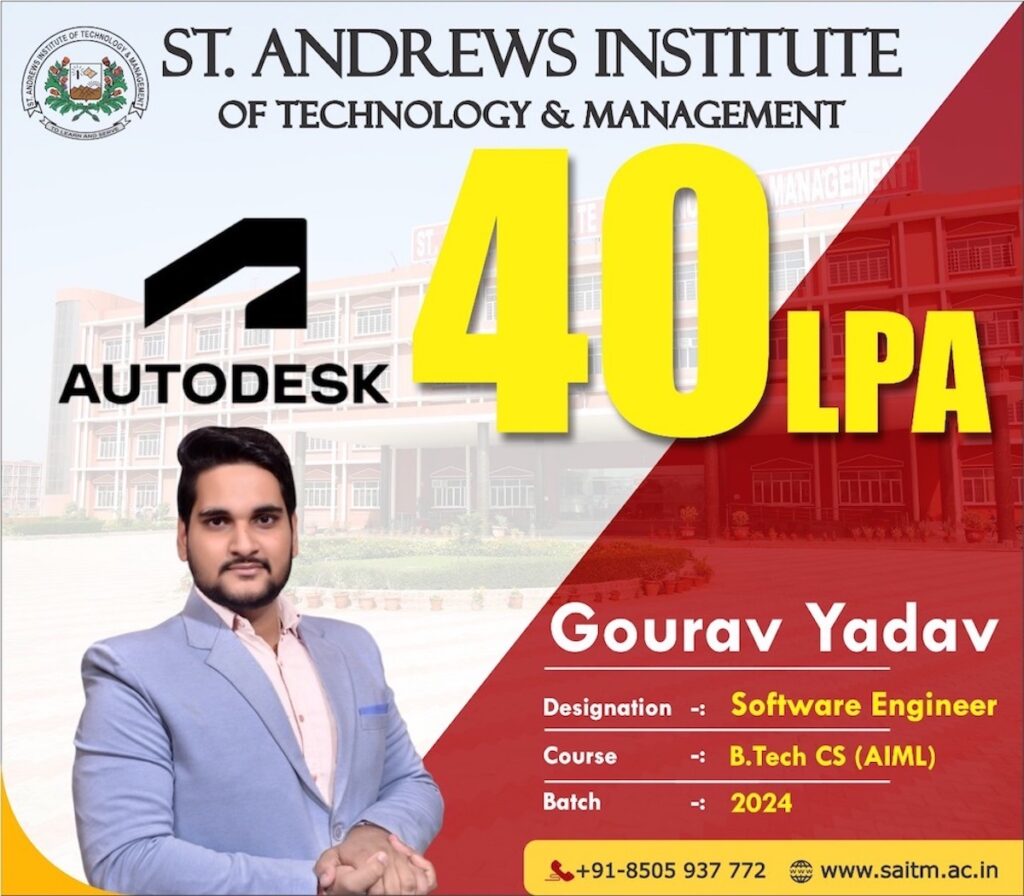
In the modern era, the importance of computer science cannot be overstated. CSE course details highlight how it serves as the backbone of our digital world, driving innovation and efficiency across various sectors.
Technological Innovation
Computer science drives advancements in technology, leading to new products and services that improve daily life and enhance productivity.
Economic Impact
It plays a critical role in economic growth, creating jobs and fostering industries like IT, software development, and digital services.
Healthcare Advancements
Computer science enables the development of medical technologies, electronic health records, telemedicine, and data analysis for better diagnosis and treatment.
Data Management
With the explosion of data, computer science provides tools and techniques for storing, processing, and analyzing large datasets, aiding decision-making across various sectors.
Communication
It facilitates global connectivity through the internet, social media, and communication platforms, transforming how people interact and share information.
Automation
Technologies powered by computer science increase efficiency and productivity in industries such as manufacturing, logistics, and customer service.
Security
It is essential for developing cybersecurity measures to protect sensitive information and systems from cyber threats and attacks.
Education
Computer science enhances educational tools and platforms, enabling online learning and access to educational resources worldwide.
Research and Development
It supports scientific research by providing computational tools and methods to solve complex problems and simulate experiments.
Entertainment
It drives the development of digital entertainment, including video games, movies, and virtual reality experiences.
Computer Science Engineering Course Overview

BTech CSE program is an academic course that integrates computer science and engineering disciplines. CSE course details include equipping students with skills in designing, implementing, and managing software and hardware processes.
The course emphasizes both theoretical and practical aspects of computing, preparing graduates for various roles in the technology sector.
Course Duration
Undergraduate Level
Bachelor of Technology (B.Tech) or Bachelor of Engineering (B.E.) in Computer Science Engineering typically spans 4 years.
Postgraduate Level
Master of Technology (M.Tech) or Master of Engineering (M.E.) in Computer Science Engineering usually lasts 2 years.
Core Subjects
- Programming Languages: C, C++, Java, Python
- Data Structures and Algorithms
- Computer Networks
- Database Management Systems
- Operating Systems
- Software Engineering
- Web Technologies
- Artificial Intelligence
- Machine Learning
- Cyber Security
- Cloud Computing
- Internet of Things (IoT)
Specializations
- Artificial Intelligence and Machine Learning
- Data Science
- Cyber Security
- Cloud Computing
- IoT (Internet of Things)
- Software Engineering
- Network Engineering
Skills Acquired
- Problem-solving and analytical skills
- Programming and software development
- Understanding of hardware and software integration
- Knowledge of network security and data protection
- Expertise in databases and data management
- Proficiency in web development and mobile applications
Career Opportunities
Software Developer: Creating and maintaining software applications.
System Analyst: Analyzing and designing technology solutions for businesses.
Network Engineer: Designing and managing network systems.
Data Scientist: Analyzing large sets of data to derive insights.
Cyber Security Analyst: Protecting systems and networks from cyber threats.
AI/ML Engineer: Developing artificial intelligence and machine learning models.
Cloud Solutions Architect: Designing cloud-based systems and services.
Top Recruiters
Google, Microsoft, Amazon, Facebook, IBM, TCS (Tata Consultancy Services), Infosys, Wipro, Accenture, Intel
Types of CSE Courses

Degrees in Computer Science Engineering (CSE) are offered at various levels, each designed to cater to different stages of education and career goals.
Here is an overview of the types of degrees offered in CSE:
1. Undergraduate Degrees
- Bachelor of Technology (B.Tech) in Computer Science Engineering: This is a four-year undergraduate degree that focuses on the technical and practical aspects of computer science and engineering. It includes a combination of theoretical coursework and hands-on labs.
- B.E. (Bachelor of Engineering) in Computer Science Engineering: Similar to B.Tech, this four-year degree emphasizes the engineering principles applied in computer science, often with a slightly different curriculum focus depending on the institution.
2. Postgraduate Degrees
- Master of Technology (M.Tech) in Computer Science Engineering: This is a two-year postgraduate degree focusing on advanced topics in computer science and engineering. It includes specialized courses, research work, and often a thesis project.
- M.E. (Master of Engineering) in Computer Science Engineering: Similar to the M.Tech, this degree offers advanced education in computer science engineering with an emphasis on research and specialized subjects.
- M.Sc (Master of Science) in Computer Science: This degree focuses on the scientific and theoretical aspects of computer science. It is typically research-oriented and may lead to a Ph.D.
3. Doctoral Degrees
Doctor of Philosophy (Ph.D.) in Computer Science Engineering: This is the highest academic degree in the field, focusing on original research and the advancement of knowledge in computer science engineering. It involves the completion of a significant dissertation based on original research.
4. Integrated Degrees
- B.Tech+M.Tech in Computer Science Engineering: This program combines both undergraduate and postgraduate studies, typically spanning five years, allowing students to earn both B.Tech and M.Tech degrees.
- B.Tech+MBA: This program combines a B.Tech in Computer Science Engineering with a Master of Business Administration (MBA), providing both technical and managerial education over five years.
5. Diploma and Associate Degrees
- Engineering Diploma in Computer Science: A three-year program designed for students who wish to start their careers early or pursue further studies in computer science engineering. It focuses on practical skills and foundational knowledge.
- Associate Degree in Computer Science: Typically offered in countries like the USA, this two-year program provides foundational knowledge in computer science and prepares students for entry-level positions or further education.
6. Online and Distance Education Degrees
Degrees Online
- B.Tech/B.E. in Computer Science Engineering: These programs offer flexibility for students to study remotely, covering the same curriculum as traditional on-campus degrees.
- M.Tech/M.E. in Computer Science Engineering: Advanced degrees offered online, providing opportunities for working professionals to enhance their skills and knowledge without interrupting their careers.
Distance Learning Diplomas and Certifications: Various institutions offer diplomas and certifications through distance learning, catering to students who need flexibility in their education.
7. Professional Certifications
Certified Courses in Specific Technologies: Institutions and online platforms offer certifications in areas such as cybersecurity, AI, cloud computing, and software development, which are valuable for career advancement and specialization.
Duration of Computer Science Engineering Courses

Bachelor’s Degree (B.Tech/B.E. in CSE):
Duration: 4 years
Structure: Typically divided into 8 semesters, with each semester lasting about 6 months. The program includes coursework, lab sessions, projects, and internships.
Master’s Degree (M.Tech/M.S. in CSE):
Duration: 2 years
Structure: Usually divided into 4 semesters, each lasting about 6 months. The program involves advanced coursework, research projects, and a thesis.
Doctoral Degree (Ph.D. in CSE):
Duration: Typically 3-5 years
Structure: The duration can vary based on the research topic and progress. It includes coursework in the initial phase, followed by comprehensive exams, independent research, and dissertation writing.
Diploma in Computer Science Engineering:
Duration: 3 years
Structure: Often divided into 6 semesters, focusing on foundational and practical aspects of computer science engineering.
Integrated Courses (B.Tech + M.Tech):
Duration: 5 years
Structure: Combines undergraduate and postgraduate studies into a single program, usually divided into 10 semesters.
Eligibility Criteria for Enrolling in a CSE Course
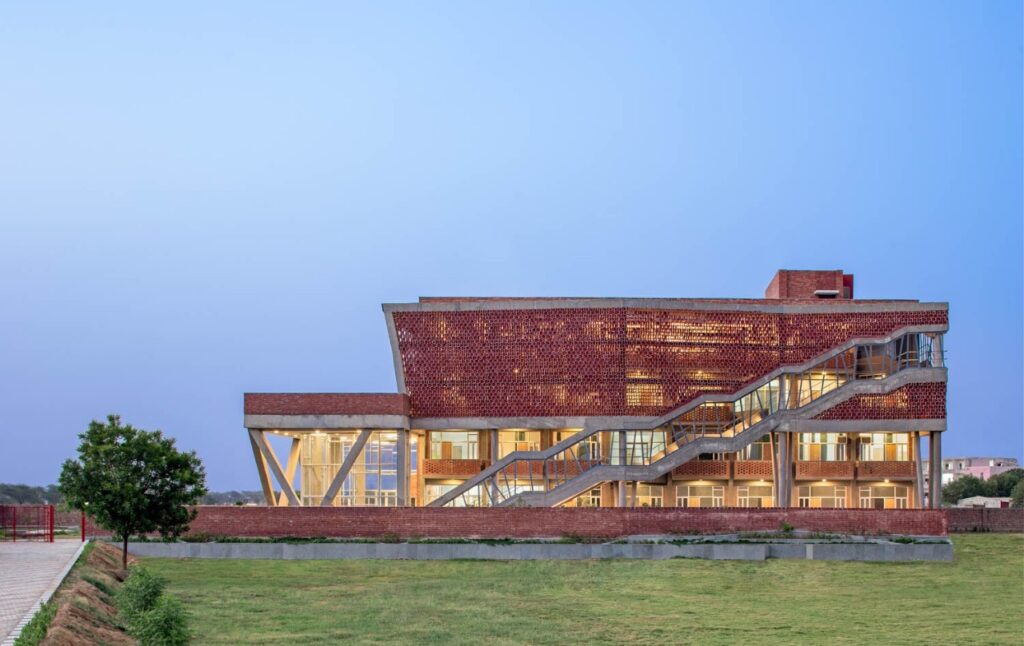
The eligibility criteria for enrolling in a Computer Science and Engineering (CSE) course typically vary based on the level of the course (undergraduate or postgraduate) and the institution. CSE course details provide specific requirements and qualifications needed for admission.
Here’s a general overview:
Undergraduate Level (B.Tech/B.E. in CSE)
Educational Qualification:
- Candidates must have completed their 10+2 (or equivalent) from a recognized board.
- They should have studied Physics, Chemistry, and Mathematics as core subjects in their 10+2.
Minimum Marks:
- Generally, candidates must have secured a minimum of 50-60% aggregate marks in their 10+2 examinations. This percentage may vary depending on the institution.
Entrance Exams:
- Admission to most engineering colleges is based on entrance exams. Some of the common entrance exams for CSE include:
- JEE Main (Joint Entrance Examination Main)
- JEE Advanced (for admission to IITs)
- State-level entrance exams like WBJEE, MHT CET, KCET, etc.
- Institutional entrance exams like BITSAT, VITEEE, SRMJEEE, etc.
Age Limit:
- Some institutions may have an age limit for admission, typically ranging from 17 to 25 years.
Postgraduate Level (M.Tech/M.E. in CSE)

Educational Qualification:
- Candidates must have a B.Tech/B.E. degree in Computer Science and Engineering or a related field from a recognized university.
Minimum Marks:
- Candidates should have secured a minimum of 50-60% aggregate marks in their undergraduate degree. This requirement may vary depending on the institution.
Entrance Exams:
- Admission to postgraduate courses is usually based on entrance exams such as:
- GATE (Graduate Aptitude Test in Engineering)
- Institutional entrance exams for specific universities
Work Experience (for some institutions):
- Some institutions may prefer or require candidates to have relevant work experience, especially for specialized or executive programs.
Diploma Level (Diploma in CSE)
Educational Qualification:
- Candidates must have completed their 10th standard (or equivalent) from a recognized board.
Minimum Marks:
- Generally, candidates must have secured a minimum of 50% aggregate marks in their 10th standard examinations.
Entrance Exams:
- Some states conduct entrance exams for diploma courses, while others may offer admission based on merit in the qualifying exam.
Additional Requirements
Reservation Policies:
Institutions follow reservation policies as per government regulations, providing relaxation in eligibility criteria for candidates belonging to SC/ST/OBC categories.
Lateral Entry:
For diploma holders seeking admission to the second year of the B.Tech/B.E. CSE course, they must have completed a relevant diploma in engineering with the required minimum percentage. CSE course details may also include clearing lateral entry entrance exams.
Top Entrance Exams for Computer Science Engineering
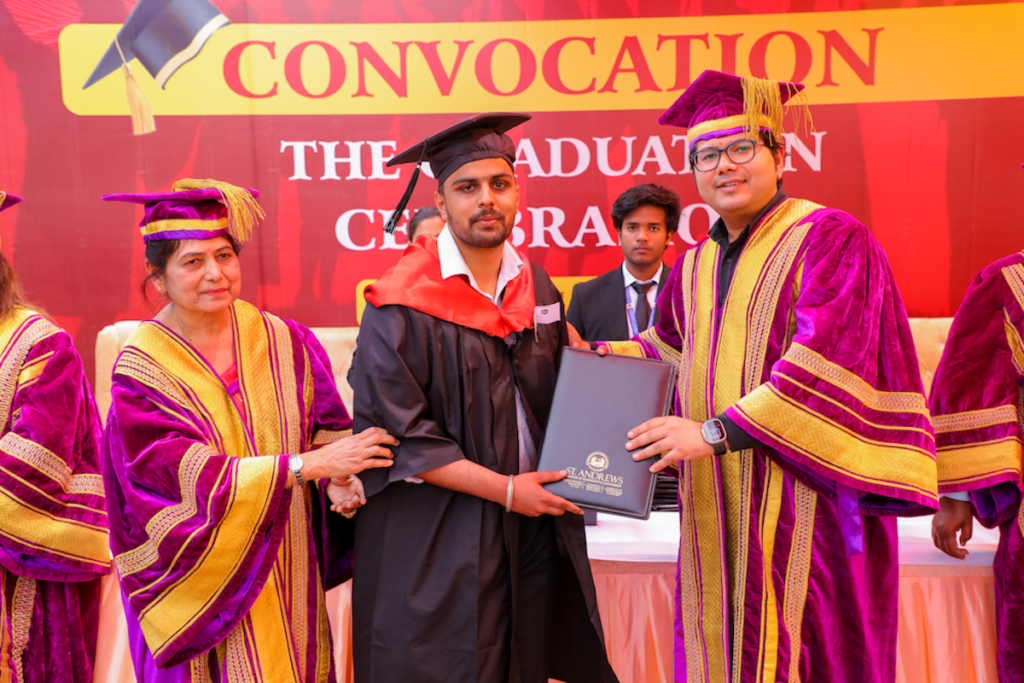
Here are some of the top entrance exams for admission to BTech CSE courses in India:
National Level Entrance Exams
JEE Main (Joint Entrance Examination Main)
- Conducted by: National Testing Agency (NTA)
- For: Admission to NITs, IIITs, and other centrally funded technical institutions.
Joint Entrance Examination Advanced (JEE Advanced)
- Conducted by: IITs on a rotational basis
- For: Admission to IITs.
BITSAT (Birla Institute of Technology and Science Admission Test)
- Conducted by: BITS Pilani
- For: Admission to BITS Pilani, Goa, and Hyderabad campuses.
VITEEE (VIT Engineering Entrance Examination)
- Conducted by: VIT University
- For: Admission to VIT Vellore and Chennai campuses.
KIITEE (Kalinga Institute of Industrial Technology Entrance Examination)
- Conducted by: KIIT University
- For: Admission to KIIT University.
State Level Entrance Exams

MHT CET (Maharashtra Common Entrance Test)
- Conducted by: State Common Entrance Test Cell, Maharashtra
- For: Admission to engineering colleges in Maharashtra.
WBJEE (West Bengal Joint Entrance Examination)
- Conducted by: West Bengal Joint Entrance Examinations Board
- For: Admission to engineering colleges in West Bengal.
KCET (Karnataka Common Entrance Test)
- Conducted by: Karnataka Examinations Authority (KEA)
- For: Admission to engineering colleges in Karnataka.
AP EAMCET (Andhra Pradesh Engineering, Agriculture, and Medical Common Entrance Test)
- Conducted by: Jawaharlal Nehru Technological University, Kakinada
- For: Admission to engineering colleges in Andhra Pradesh.
TS EAMCET (Telangana State Engineering, Agriculture, and Medical Common Entrance Test)
- Conducted by: Jawaharlal Nehru Technological University, Hyderabad
- For: Admission to engineering colleges in Telangana.
TANCET (Tamil Nadu Common Entrance Test)
- Conducted by: Anna University
- For: Admission to M.E./M.Tech courses in Tamil Nadu.
Admission Process for CSE Courses
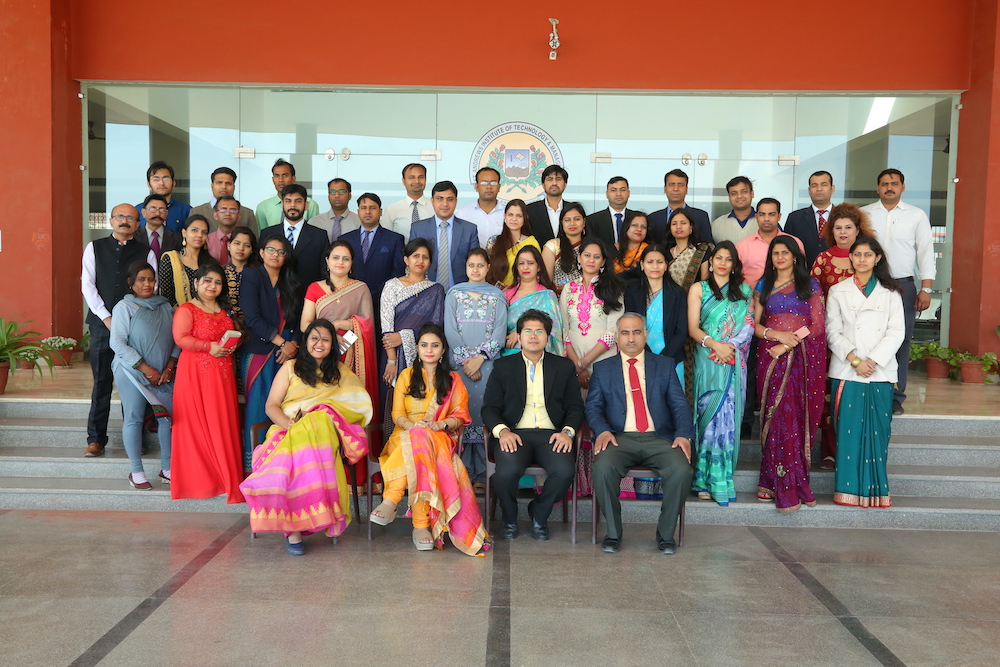
The admission process for Computer Science and Engineering (CSE) courses at the undergraduate (UG) and postgraduate (PG) levels involves different steps and requirements. CSE course details provide specific information on these admission procedures.
Here is a detailed overview of both processes:
Undergraduate (UG) Admission Process for CSE
1. Eligibility Criteria:
Educational Qualification: Completion of 10+2 or equivalent examination with Physics, Chemistry, and Mathematics (PCM) as core subjects.
Minimum Marks: Typically, a minimum of 50-60% in 10+2, though this can vary by institution.
Age Limit: Generally, candidates should be at least 17 years old at the time of admission.
2. Entrance Exams:
Admission to UG CSE courses is primarily based on entrance exam scores. Major entrance exams include:
JEE Main: Conducted by the National Testing Agency (NTA) for admission to NITs, IIITs, and other centrally funded institutions.
JEE Advanced: For admission to the Indian Institutes of Technology (IITs). Only candidates who qualify JEE Main are eligible.
State-Level Exams: Such as MHT CET (Maharashtra), KCET (Karnataka), WBJEE (West Bengal), etc.
University-Level Exams: Such as BITSAT (BITS Pilani), VITEEE (VIT University), etc.
3. Application Process:
Online Registration: Register for the respective entrance examinatios by filling out the online application form available on the official website.
Application Fee: Pay the application fee through online modes (credit/debit card, net banking, UPI, etc.).
Uploading Documents: Upload scanned copies of required documents, such as photographs, signatures, and academic certificates.
4. Entrance Exam:
Exam Pattern: Entrance examinations typically consist of multiple-choice questions (MCQs) covering Physics, Chemistry, and Mathematics.
Admit Card: Download the admit card from the official website and carry it to the examination center.
5. Result Declaration:
Score Card: Results are declared as a scorecard, which includes marks obtained in each subject and the overall rank.
Cut-off Marks: Institutions release cut-off marks for various categories (General, OBC, SC/ST, etc.).
6. Counseling Process:
Registration: Register for the counseling process conducted by respective authorities (e.g., JoSAA for JEE).
Choice Filling: Fill in preferred choices of colleges and courses.
Seat Allotment: Seats are allotted based on ranks and choices filled. Candidates can accept the seat, float (wait for a better option), or withdraw.
Document Verification: Verification of original documents at designated centers.
Fee Payment: Pay the admission fee to confirm the seat.
7. Final Admission:
Reporting to College: Report to the allotted college within the specified time frame.
Orientation and Registration: Participate in orientation programs and complete the final registration process at the college.
Key Documents Required:
- 10th and 12th Mark Sheets and Certificates
- Entrance Exam Admit Card and Score Card
- Transfer Certificate (TC)
- Migration Certificate (if applicable)
- Category Certificate (if applicable)
- Passport-sized Photographs
- Identity Proof (Aadhaar Card, Passport, etc.)
Postgraduate (PG) Admission Process for CSE

1. Eligibility Criteria:
Educational Qualification: Completion of a Bachelor’s degree in Engineering/Technology or equivalent, preferably in CSE or a related field.
Minimum Marks: Typically, a minimum of 55-60% in the Bachelor’s degree, though this can vary by institution.
2. Entrance Exams:
Admission to PG CSE courses is primarily based on entrance exam scores. Major entrance examinations include:
GATE (Graduate Aptitude Test in Engineering): Conducted jointly by the IITs and IISc for admission to M.Tech programs in premier institutes.
University-Level Exams: Some universities conduct their own entrance exams (e.g., BITS HD, VITMEE).
3. Application Process:
Online Registration: Register for the respective entrance examinations by filling out the online application form available on the official website.
Application Fee: Pay the application fee through online modes (credit/debit card, net banking, UPI, etc.).
Uploading Documents: Upload scanned copies of required documents, such as photographs, signatures, and academic certificates.
4. Entrance Exam:
Exam Pattern: Entrance exams typically consist of multiple-choice questions (MCQs) covering topics from undergraduate-level engineering subjects.
Admit Card: Download the admit card from the official website and carry it to the examination center.
5. Result Declaration:
Score Card: Results are declared as a scorecard, which includes marks obtained in each subject and the overall rank.
Cut-off Marks: Institutions release cut-off marks for various categories (General, OBC, SC/ST, etc.).
6. Counseling Process:
Registration: Register for the counseling process conducted by respective authorities (e.g., COAP for GATE).
Choice Filling: Fill in preferred choices of colleges and courses.
Seat Allotment: Seats are allotted based on ranks and choices filled. Candidates can accept the seat, float (wait for a better option), or withdraw.
Document Verification: Verification of original documents at designated centers.
Fee Payment: Pay the admission fee to confirm the seat.
7. Final Admission:
Reporting to College: Report to the allotted college within the specified time frame.
Orientation and Registration: Participate in orientation programs and complete the final registration process at the college.
Documents Required:
- Bachelor’s Degree Mark Sheets and Certificates
- Entrance Exam Admit Card and Score Card
- Transfer Certificate (TC)
- Migration Certificate (if applicable)
- Category Certificate (if applicable)
- Passport-sized Photographs
- Identity Proof (Aadhaar Card, Passport, etc.)
Fee Structure for Computer Science and Engineering Courses

Costs associated with Computer Science and Engineering (CSE) courses can differ greatly depending on factors like whether the institution is government-run or private, its location, reputation, and the facilities provided. Below is a general overview of the fee structures for CSE courses at both undergraduate (UG) and postgraduate (PG) levels in India:
Undergraduate (UG) Fee Structure for CSE
Government Institutions:
Indian Institutes of Technology (IITs):
- Annual Tuition Fee: ₹2 to ₹2.5 lakhs per annum
- Additional Costs: Hostel fee, mess charges, and other miscellaneous expenses can add up to ₹50,000 to ₹70,000 per annum.
National Institutes of Technology (NITs):
- Annual Tuition Fee: ₹1.25 to ₹1.75 lakhs per annum
- Additional Costs: Hostel fee, mess charges, and other miscellaneous expenses can add up to ₹40,000 to ₹60,000 per annum.
State Government Colleges:
- Annual Tuition Fee: ₹50,000 to ₹1.5 lakhs per annum
- Additional Costs: Hostel and other charges vary, typically adding ₹30,000 to ₹50,000 per annum.
Private Institutions:
Top Private Universities (e.g., BITS Pilani, VIT):
- Annual Tuition Fee: ₹3 to ₹5 lakhs per annum
- Additional Costs: Hostel fee, mess charges, and other expenses can add ₹1 lakh to ₹1.5 lakhs per annum.
Other Private Engineering Colleges:
- Annual Tuition Fee: ₹1.5 to ₹3 lakhs per annum
- Additional Costs: Hostel and other charges vary, typically adding ₹50,000 to ₹1 lakh per annum.
Postgraduate (PG) Fee Structure for CSE
Government Institutions:
Indian Institutes of Technology (IITs):
- Annual Tuition Fee: ₹50,000 to ₹1 lakh per annum
- Additional Costs: Hostel fee, mess charges, and other miscellaneous expenses can add ₹50,000 to ₹70,000 per annum.
National Institutes of Technology (NITs):
- Annual Tuition Fee: ₹50,000 to ₹1 lakh per annum
- Additional Costs: Hostel fee, mess charges, and other miscellaneous expenses can add ₹40,000 to ₹60,000 per annum.
State Government Colleges:
- Annual Tuition Fee: ₹30,000 to ₹70,000 per annum
- Additional Costs: Hostel and other charges vary, typically adding ₹30,000 to ₹50,000 per annum.
Private Institutions:
Top Private Universities (e.g., BITS Pilani, VIT, SAITM):
- Annual Tuition Fee: ₹2 to ₹4 lakhs per annum
- Additional Costs: Hostel fee, mess charges, and other expenses can add ₹1 lakh to ₹1.5 lakhs per annum.
Other Private Engineering Colleges:
- Annual Tuition Fee: ₹1 lakh to ₹2 lakhs per annum
- Additional Costs: Hostel and other charges vary, typically adding ₹50,000 to ₹1 lakh per annum.
Scholarships and Financial Aid:
Many institutions offer scholarships and financial aid to meritorious and economically disadvantaged students. These can significantly reduce the cost of education. Scholarships may be based on entrance exam scores, academic performance, or specific criteria set by the institution or government schemes.
Key Points to Consider:
- Hidden Costs: Apart from tuition and hostel fees, students should consider additional costs such as textbooks, study materials, transportation, and personal expenses.
- Payment Plans: Some institutions offer installment payment plans or loan facilities in collaboration with banks.
- Fee Waivers: Government colleges often provide fee waivers or reductions for reserved category students (SC/ST/OBC/EWS) and those from economically weaker sections.
Computer Science Engineering Syllabus
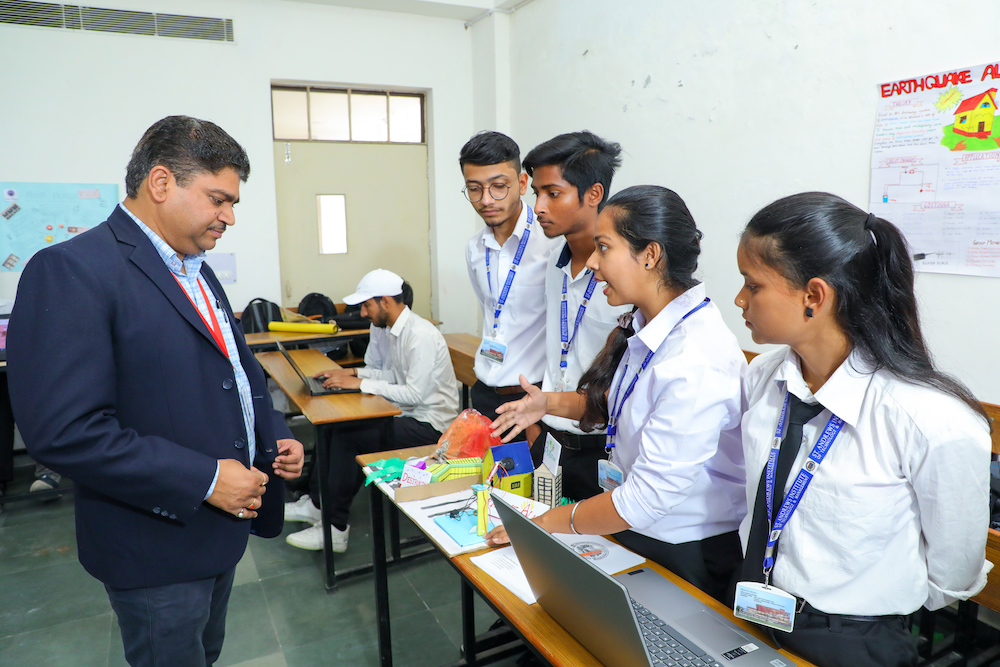
The syllabus for Computer Science Engineering (CSE) typically covers a wide range of topics aimed at providing students with a strong foundation in both theoretical and practical aspects of computer science.
Here’s an overview of computer science engineering subjects for both undergraduate (UG) and postgraduate (PG) programs in Computer Science Engineering (CSE):
Undergraduate (UG) Computer Science Engineering Syllabus
First Year:
Semester 1
- Mathematics I: Calculus, Linear Algebra, Probability.
- Physics: Mechanics, Waves, Optics.
- Chemistry: Basic concepts, Periodic Table, Chemical Bonding.
- Introduction to computer Programming: Basics of C/C++/Python, Algorithms.
- Engineering Graphics: Technical Drawing, CAD.
- Basic Electrical Engineering: Circuit Theory, Electrical Machines.
Semester 2
- Mathematics II: Differential Equations, Complex Analysis.
- Digital Logic Design: Boolean Algebra, Logic Gates, Flip-Flops.
- Data Structures: Arrays, Linked Lists, Stacks, Queues, Trees.
- Discrete Mathematics: Set Theory, Graph Theory, Combinatorics.
- Environmental Science: Ecology, Sustainability.
- Engineering Mechanics: Statics, Dynamics.
Second Year:
Semester 3
- Mathematics III: Probability, Statistics, Numerical Methods.
- Computer Organization and Architecture: CPU, Memory, I/O Systems.
- Object-Oriented Programming: Java/C++, Classes, Inheritance, Polymorphism.
- Database Management Systems: SQL, ER Diagrams, Normalization.
- Operating Systems: Processes, Threads, Scheduling, Memory Management.
- Communication Skills: Technical Writing, Presentation Skills.
Semester 4
- Theory of Computation: Automata Theory, Turing Machines, Decidability.
- Software Engineering: SDLC, Agile Methodologies, Testing.
- Design and Analysis of Algorithms: Sorting, Searching, Graph Algorithms.
- Microprocessors and Microcontrollers: Assembly Language, 8085/8086, Interfacing.
- Computer Networks: OSI Model, TCP/IP, Routing, Switching.
- Professional Ethics and Human Values: Engineering Ethics, Case Studies.
Third Year
Semester 5
- Compiler Design: Lexical Analysis, Parsing, Code Generation.
- Artificial Intelligence: Machine Learning, Neural Networks, Expert Systems.
- Web Technologies: HTML, CSS, JavaScript, PHP.
- Elective I: Choices such as Cyber Security, IoT, Cloud Computing.
- Project I: Minor Project on selected topics.
Semester 6
- Distributed Systems: Distributed Computing, Consensus Algorithms.
- Machine Learning: Supervised Learning, Unsupervised Learning, Reinforcement Learning.
- Software Testing and Quality Assurance: Testing Techniques, Quality Metrics.
- Elective II: Choices such as Big Data, Blockchain, Augmented Reality.
- Project II: Continuation of Minor Project or new project.
Fourth Year
Semester 7
- Information Security: Cryptography, Network Security, Ethical Hacking.
- Mobile Computing: Mobile OS, App Development, Wireless Communication.
- Elective III: Choices such as Natural Language Processing, Robotics, Bioinformatics.
- Project III: Major Project on selected topics.
Semester 8
- Advanced Computer Architecture: Parallel Processing, Multicore Systems.
- Data Mining and Data Warehousing: Data Preprocessing, Data Warehousing Architectures.
- Elective IV: Choices such as Digital Image Processing, Game Development, Quantum Computing.
- Project IV: Finalization and submission of Major Project.
- Industrial Training/Internship: Practical exposure in industry.
Lab Work;
Throughout the course, students will also engage in various lab work related to:
- Programming and Data Structures.
- Digital Logic Design.
- Microprocessors.
- Database Management Systems.
- Operating Systems.
- Computer Networks.
- Web Technologies.
- AI and Machine Learning.
- Software Engineering.
Additional Components:
- Seminars and Workshops: On emerging technologies and industry trends.
- Soft Skills Training: Communication, Leadership, and Teamwork.
- Industrial Visits: To gain practical exposure to industry operations.
Postgraduate (PG) Computer Science Engineering Syllabus
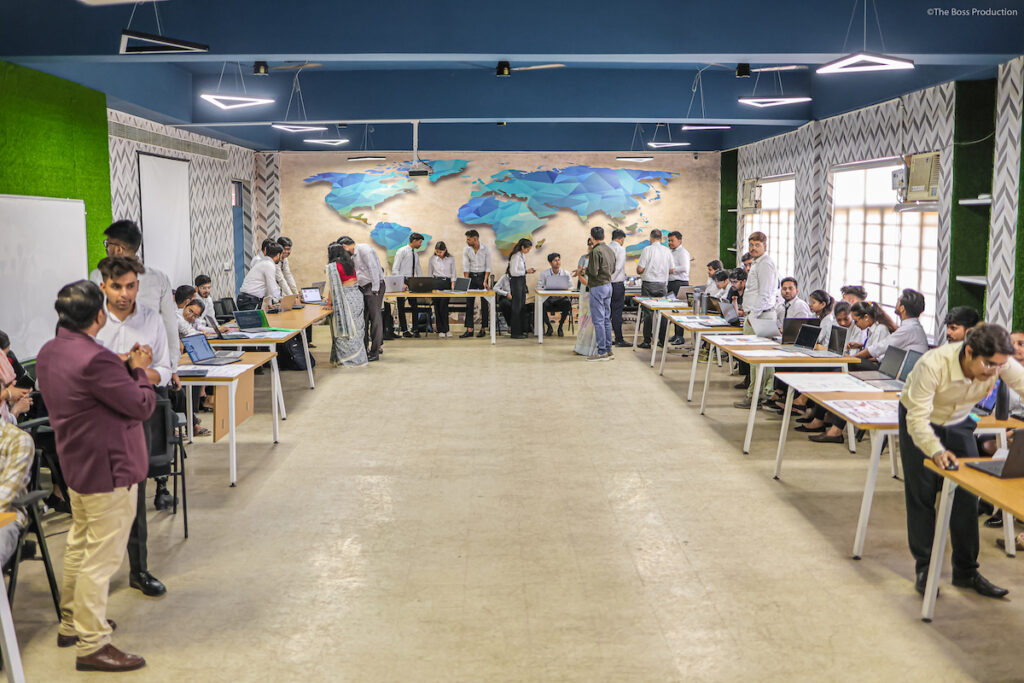
First Year
Semester 1
- Advanced Data Structures and Algorithms: Advanced Trees, Graph Algorithms, Complexity Analysis.
- Advanced Computer Architecture: Parallel Computing, Multicore Architecture, Performance Analysis.
- Advanced Operating Systems: Distributed Systems, Real-Time Systems, Security.
- Research Methodology: Research Design, Data Analysis, Technical Writing.
- Elective I: Choices such as Advanced Databases, Network Security, IoT.
Semester 2
- Machine Learning: Deep Learning, Probabilistic Graphical Models, Applications.
- Advanced Software Engineering: Formal Methods, Software Metrics, Project Management.
- Data Science and Big Data Analytics: Data Mining, Big Data Technologies, Hadoop.
- Elective II: Choices such as Cloud Computing, Quantum Computing, Augmented Reality.
- Mini Project: Small-scale project related to specialization.
Second Year;
Semester 3
- Artificial Intelligence: Advanced AI Techniques, Neural Networks, Expert Systems.
- Cyber Security: Advanced Cryptography, Network Defense, Secure Coding.
- Elective III: Choices such as Natural Language Processing, Robotics, Bioinformatics.
- Thesis Work: Research work on chosen topic.
Semester 4
- Elective IV: Choices such as Digital Image Processing, Advanced Computer Graphics, Game Development.
- Thesis Work Continuation: Finalization and submission of thesis.
Lab Work:
- Advanced Programming and Algorithms Lab.
- Machine Learning Lab.
- Cyber Security Lab.
- Big Data Analytics Lab.
Additional Components
- Seminars and Workshops: On cutting-edge research and technologies.
- Soft Skills Training: Advanced communication, Leadership, Research presentation.
- Industry Collaborations: Internships, Collaborative projects with industries.
Career Scope and Job Profiles after Completing a CSE Course

Completing a course in Computer Science Engineering (CSE) opens up a wide range of career opportunities in various industries.
Here are some of the key career scopes and job profiles:
Career Scope
Software Development: Creating, testing, and maintaining software applications.
Data Science and Analytics: Analyzing and interpreting complex data to help make informed business decisions.
Artificial Intelligence and Machine Learning: Developing algorithms and systems that enable machines to learn and make decisions.
Cyber Security: Protecting systems and networks from cyber threats and attacks.
Cloud Computing: Designing and managing cloud-based infrastructure and services.
Web Development: Building and maintaining websites and web applications.
Networking: Managing and maintaining computer networks.
Database Administration: Managing and maintaining databases to ensure their availability, security, and performance.
Embedded Systems: Designing and developing embedded systems for various applications.
IT Consulting: Providing expert advice to organizations on how to use IT to meet their business objectives.
Job Profiles
Software Engineer/Developer: Developing software applications, writing code, and debugging.
Data Scientist: Analyzing data to derive actionable insights, building predictive models.
Machine Learning Engineer: Designing and implementing machine learning algorithms and models.
Cyber Security Analyst: Protecting an organization’s data and systems from cyber threats.
Cloud Solutions Architect: Designing and managing cloud infrastructure and solutions.
Full Stack Developer: Working on both the front-end and back-end of web applications.
Network Engineer: Designing, implementing, and managing computer networks.
Database Administrator: Managing databases to ensure data integrity, security, and performance.
System Analyst: Analyzing and designing IT solutions to meet business requirements.
DevOps Engineer: Automating and streamlining operations, implementing continuous integration and deployment.
IT Project Manager: Planning, executing, and closing IT projects within scope, time, and budget.
Business Analyst: Bridging the gap between business needs and technical solutions.
Technical Support Engineer: Providing technical assistance and troubleshooting issues.
UX/UI Designer: Designing user interfaces and user experiences for software applications.
Research Scientist: Conducting research and development in cutting-edge areas of computer science.
Industries Hiring BTech CSE Graduates
Information Technology: Software companies, IT services, consulting firms.
Finance and Banking: Financial institutions, fintech companies.
Healthcare: Health IT companies, medical software development.
Telecommunications: Network service providers, mobile and internet companies.
Retail and E-commerce: Online retail companies, marketplaces.
Manufacturing: Industrial automation, embedded systems.
Government and Defense: Cyber security, data analysis, system administration.
Education and Research: Academic institutions, research labs.
Entertainment and Media: Gaming, animation, digital media companies.
Future Trends
- Artificial Intelligence and Machine Learning: Increasing demand for AI and ML expertise.
- Cyber Security: Growing need for security professionals as cyber threats evolve.
- Data Science and Analytics: Expanding role of data-driven decision-making.
- Cloud Computing: Continued growth of cloud services and infrastructure.
- IoT and Embedded Systems: Rising use of connected devices and smart technologies.
- Blockchain: Emerging applications in various sectors beyond cryptocurrencies.
- Quantum Computing: Potential to revolutionize computing with new paradigms.
Salary Range for Computer Science Engineering Graduates
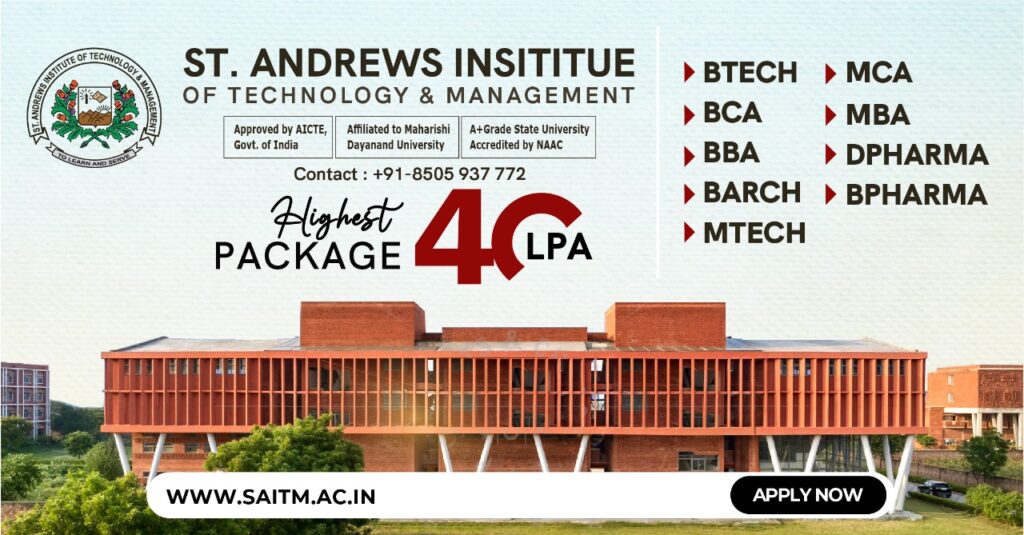
The salary range for Computer Science Engineering (CSE) graduates can vary significantly based on factors such as location, industry, experience, and the specific job role.
Here’s a general overview of the salary ranges for various positions typically held by CSE graduates:
Entry-Level Positions (0-2 years of experience)
- Software Engineer/Developer: ₹3,00,000 – ₹6,00,000 per annum
- Data Scientist: ₹4,00,000 – ₹7,00,000 per annum
- Machine Learning Engineer: ₹4,00,000 – ₹8,00,000 per annum
- Cyber Security Analyst: ₹3,50,000 – ₹6,00,000 per annum
- Cloud Solutions Architect: ₹4,50,000 – ₹8,00,000 per annum
- Full Stack Developer: ₹3,50,000 – ₹7,00,000 per annum
- Network Engineer: ₹3,00,000 – ₹5,50,000 per annum
- Database Administrator: ₹3,50,000 – ₹6,00,000 per annum
- System Analyst: ₹3,00,000 – ₹5,50,000 per annum
- DevOps Engineer: ₹4,00,000 – ₹7,00,000 per annum
- IT Project Manager: ₹4,50,000 – ₹8,00,000 per annum
- Business Analyst: ₹3,50,000 – ₹6,50,000 per annum
- Technical Support Engineer: ₹2,50,000 – ₹5,00,000 per annum
- UX/UI Designer: ₹3,00,000 – ₹6,00,000 per annum
- Research Scientist: ₹4,00,000 – ₹7,00,000 per annum
Mid-Level Positions (3-7 years of experience)
- Software Engineer/Developer: ₹6,00,000 – ₹12,00,000 per annum
- Data Scientist: ₹8,00,000 – ₹15,00,000 per annum
- Machine Learning Engineer: ₹8,00,000 – ₹16,00,000 per annum
- Cyber Security Analyst: ₹6,00,000 – ₹12,00,000 per annum
- Cloud Solutions Architect: ₹9,00,000 – ₹18,00,000 per annum
- Full Stack Developer: ₹7,00,000 – ₹14,00,000 per annum
- Network Engineer: ₹5,50,000 – ₹10,00,000 per annum
- Database Administrator: ₹6,00,000 – ₹12,00,000 per annum
- System Analyst: ₹5,50,000 – ₹10,00,000 per annum
- DevOps Engineer: ₹7,00,000 – ₹14,00,000 per annum
- IT Project Manager: ₹9,00,000 – ₹18,00,000 per annum
- Business Analyst: ₹6,50,000 – ₹12,00,000 per annum
- Technical Support Engineer: ₹4,50,000 – ₹8,00,000 per annum
- UX/UI Designer: ₹5,50,000 – ₹10,00,000 per annum
- Research Scientist: ₹8,00,000 – ₹15,00,000 per annum
Senior-Level Positions (8+ years of experience)
- Software Engineer/Developer: ₹12,00,000 – ₹25,00,000 per annum
- Data Scientist: ₹15,00,000 – ₹30,00,000 per annum
- Machine Learning Engineer: ₹16,00,000 – ₹32,00,000 per annum
- Cyber Security Analyst: ₹12,00,000 – ₹25,00,000 per annum
- Cloud Solutions Architect: ₹18,00,000 – ₹35,00,000 per annum
- Full Stack Developer: ₹14,00,000 – ₹28,00,000 per annum
- Network Engineer: ₹10,00,000 – ₹20,00,000 per annum
- Database Administrator: ₹12,00,000 – ₹25,00,000 per annum
- System Analyst: ₹10,00,000 – ₹20,00,000 per annum
- DevOps Engineer: ₹14,00,000 – ₹28,00,000 per annum
- IT Project Manager: ₹18,00,000 – ₹35,00,000 per annum
- Business Analyst: ₹12,00,000 – ₹24,00,000 per annum
- Technical Support Engineer: ₹8,00,000 – ₹16,00,000 per annum
- UX/UI Designer: ₹10,00,000 – ₹20,00,000 per annum
- Research Scientist: ₹15,00,000 – ₹30,00,000 per annum
Industry Variations
- Information Technology: Generally offers competitive salaries across various roles.
- Finance and Banking: Often higher salaries, especially for data science and cybersecurity roles.
- Healthcare: Specialized roles in health IT and bioinformatics can command premium salaries.
- Telecommunications: Good salary packages, especially in network engineering and cybersecurity.
- Retail and E-commerce: Competitive salaries with added bonuses based on performance.
- Manufacturing: Embedded systems and IoT roles are well-paid.
- Government and Defense: Salaries might be slightly lower but with added job security and benefits.
- Education and Research: Academic roles may offer lower salaries but come with perks like research grants and tenure.
- Entertainment and Media: High salaries in gaming, animation, and digital media.
Geographic Variations
- Metropolitan Cities: Higher salaries due to the cost of living (e.g., Bangalore, Mumbai, Delhi).
- Tier-2 Cities: Slightly lower salaries but better cost of living balance (e.g., Pune, Hyderabad, Chennai).
- Overseas: Salaries are significantly higher in countries like the USA, Canada, Germany, and Australia.
Required Skill set and Certifications

Certifications for Computer Science Professionals
Earning certifications can significantly enhance the skills and employability of computer science professionals.
Here are some widely recognized certifications across various specializations in computer science:
Software Development
- Microsoft Certified: Azure Developer Associate
- Oracle Certified Professional, Java SE Programmer
- Google Associate Android Developer
- AWS Certified Developer – Associate
- Puppet Certified Professional
Data Science and Analytics
- Certified Analytics Professional (CAP)
- IBM Data Science Professional Certificate
- Microsoft Certified: Azure Data Scientist Associate
- Google Professional Data Engineer
- SAS Certified Data Scientist
Artificial Intelligence and Machine Learning
- TensorFlow Developer Certificate
- Microsoft Certified: Azure AI Engineer Associate
- IBM AI Engineering Professional Certificate
- AWS Certified Machine Learning – Specialty
- Google Cloud Professional Machine Learning Engineer
Cyber Security
- Certified Information Systems Security Professional (CISSP)
- Certified Ethical Hacker (CEH)
- CompTIA Security+
- Certified Information Security Manager (CISM)
- Certified Information Systems Auditor (CISA)
Cloud Computing
- AWS Certified Solutions Architect – Associate/Professional
- Microsoft Certified: Azure Solutions Architect Expert
- Google Cloud Professional Cloud Architect
- Certified Cloud Security Professional (CCSP)
- IBM Certified Cloud Solution Architect
Web Development
- Certified Web Professional – Web Developer
- Adobe Certified Expert (ACE)
- Zend Certified PHP Engineer
- CIW JavaScript Specialist
- Google Mobile Web Specialist
Networking
- Cisco Certified Network Associate (CCNA)
- Cisco Certified Network Professional (CCNP)
- CompTIA Network+
- Juniper Networks Certified Internet Associate (JNCIA)
- Wireshark Certified Network Analyst (WCNA)
Database Administration
- Oracle Certified Professional, MySQL Database Administrator
- Microsoft Certified: Azure Database Administrator Associate
- IBM Certified Database Administrator – DB2
- MongoDB Certified DBA Associate
- PostgreSQL Certified DBA
DevOps
- AWS Certified DevOps Engineer – Professional
- Certified Kubernetes Administrator (CKA)
- Docker Certified Associate (DCA)
- Google Professional DevOps Engineer
- Microsoft Certified: DevOps Engineer Expert
Project Management
- Project Management Professional (PMP)
- Certified ScrumMaster (CSM)
- PRINCE2 Practitioner
- Agile Certified Practitioner (PMI-ACP)
- CompTIA Project+
UX/UI Design
- Certified Usability Analyst (CUA)
- Adobe Certified Expert (ACE)
- NN/g UX Certification
- Interaction Design Foundation (IDF) Certifications
- HFI Certified Usability Analyst (CUA)
Emerging Technologies
- Certified Blockchain Developer (CBD)
- Certified Internet of Things (IoT) Professional
- Microsoft Certified: Power Platform Developer Associate
- Certified Virtual Reality Developer
- Quantum Computing Professional Certificate
These certifications are valuable for professionals looking to enhance their knowledge, keep up with industry trends, and improve their career prospects.
Essential Skills for Computer Science Engineering Graduates
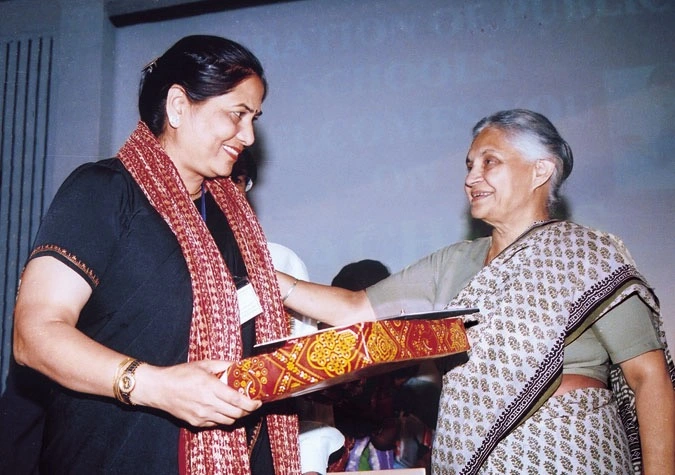
Computer Science Engineering graduates need a blend of technical, analytical, and soft skills to excel in their careers.
Here are some essential skills:
Technical Skills
- Programming Languages:
- Proficiency in languages like Python, Java, C++, JavaScript, and SQL.
- Data Structures and Algorithms:
- Understanding of fundamental data structures (arrays, linked lists, trees, graphs) and algorithms (sorting, searching, dynamic programming).
- Software Development:
- Knowledge of software development methodologies (Agile, Scrum) and tools (Git, GitHub).
- Database Management:
- Proficiency in SQL and experience with database management systems like MySQL, PostgreSQL, MongoDB.
- Operating Systems:
- Understanding of OS concepts such as memory management, process scheduling, and file systems.
- Computer Networks:
- Knowledge of networking concepts, protocols (TCP/IP, HTTP), and network troubleshooting.
- Web Development:
- Skills in HTML, CSS, JavaScript, and frameworks like React, Angular, or Vue.js.
- Cyber Security:
- Understanding of security principles, encryption, and ethical hacking.
- Cloud Computing:
- Familiarity with cloud platforms like AWS, Azure, and Google Cloud, and concepts like virtualization and containerization (Docker, Kubernetes).
- Artificial Intelligence and Machine Learning:
- Basics of machine learning algorithms, deep learning, and AI frameworks like TensorFlow, PyTorch.
- Software Testing and Quality Assurance:
- Knowledge of testing frameworks, automated testing, and software quality metrics.
- Mobile Development:
- Skills in mobile app development platforms such as Android and iOS.
Analytical Skills
- Problem-Solving:
- Ability to break down complex problems and develop efficient solutions.
- Critical Thinking:
- Evaluating multiple solutions and approaches logically.
- Data Analysis:
- Analyzing data to extract meaningful insights and support decision-making.
Soft Skills
- Communication:
- Effective verbal and written communication skills for technical documentation and collaboration.
- Teamwork:
- Ability to work effectively in a team environment, collaborate on projects, and manage conflicts.
- Time Management:
- Prioritizing tasks, meeting deadlines, and managing multiple projects simultaneously.
- Adaptability:
- Being open to new technologies, methods, and environments.
- Attention to Detail:
- Precision in coding, debugging, and analyzing problems to avoid errors.
- Leadership:
- Leading projects, mentoring peers, and taking initiative.
Additional Skills
- Project Management:
- Basic understanding of project management principles and tools like JIRA, Trello.
- Ethical Understanding:
- Awareness of ethical considerations in technology, such as data privacy and ethical AI.
- Continuous Learning:
- Staying updated with the latest technologies, trends, and industry practices through continuous learning and professional development.
Industry-Specific Skills
- Financial Technology (FinTech):
- Knowledge of blockchain, cryptocurrency, and financial regulations.
- Healthcare IT:
- Understanding of electronic health records (EHRs), health information systems, and compliance with healthcare regulations.
- E-commerce:
- Skills in building scalable e-commerce platforms, payment gateways, and user experience design.
- Gaming:
- Proficiency in game development engines like Unity or Unreal Engine and knowledge of game design principles.
Practical Experience
- Internships and Projects:
- Hands-on experience through internships, co-op programs, and academic projects.
- Open Source Contributions:
- Participation in open-source projects to demonstrate skills and collaborate with the developer community.
- Certifications:
- Relevant certifications to validate expertise in specific areas, such as AWS Certified Developer, Certified Ethical Hacker, or TensorFlow Developer Certificate.
Top BTech CSE Colleges

Top Government Colleges for Computer Science Engineering in India
India is home to some prestigious government computer science engineering colleges, known for their excellent faculty, research facilities, and placement opportunities.
Here are some of the top government BTech CSE colleges in India:
Indian Institutes of Technology (IITs)
IIT Bombay, IIT Delhi, IIT Madras, IIT Kanpur, IIT Kharagpur and IIT Roorkee
Highlights: Strong emphasis on research, excellent placement records, and state-of-the-art infrastructure.
St. Andrews Institute of Technology and Management (SAITM), Gurgaon
- Location: Gurgaon, Haryana
- Highlights: Scenic campus, strong focus on research, and excellent placement rates.
National Institutes of Technology (NITs)
NIT Trichy (NITT), NIT Surathkal, NIT Warangal, NIT Calicut and NIT Rourkela
Highlights: Emphasis on practical learning, diverse research opportunities, Large campus, quality education, strong alumni network and excellent placement opportunities.
Indian Institute of Information Technology (IIITs)
IIIT Hyderabad, IIIT Allahabad and IIIT Bangalore
Highlights: Strong emphasis on research, Focus on IT and software, excellent faculty, and strong industry connections.
Other Top Government Colleges
Birla Institute of Technology and Science (BITS) Pilani
- Location: Pilani, Rajasthan
- Highlights: Private but offers top-tier education comparable to the best government colleges.
St. Andrews Institute of Technology and Management (SAITM), Gurgaon
- Location: Gurgaon, Haryana
- Highlights: High Placement Rates, Strong Alumni Network, Vibrant Campus Life.
Delhi Technological University (DTU)
- Location: New Delhi, Delhi
- Highlights: Strong placement records, excellent faculty, and modern infrastructure.
- Location: Kolkata, West Bengal
- Highlights: Known for its research excellence, quality education, and strong placement support.
Indian Institute of Engineering Science and Technology (IIEST) Shibpur
- Location: Howrah, West Bengal
- Highlights: Rich history, excellent faculty, and strong placement records.
- Location: Chennai, Tamil Nadu
- Highlights: Strong focus on engineering disciplines, quality education, and good placement opportunities.
Top Private Colleges for Computer Science Engineering in India

India has several prestigious private colleges offering top-notch education in Computer Science Engineering.
Here are some of the top private colleges for Computer Science Engineering in India:
Top Private Colleges for Computer Science Engineering
Birla Institute of Technology and Science (BITS) Pilani
- Location: Pilani, Rajasthan (with campuses in Goa and Hyderabad)
- Highlights: Known for its rigorous academic curriculum, excellent faculty, strong research facilities, and high placement rates.
Vellore Institute of Technology (VIT)
- Location: Vellore, Tamil Nadu (with campuses in Chennai, Bhopal, and Amaravati)
- Highlights: Offers diverse specializations, excellent infrastructure, strong industry collaborations, and impressive placement records.
St. Andrews Institute of Technology and Management (SAITM), Gurgaon
- Location: Gurgaon, Haryana
- Highlights: Known for its strong industry connections, diverse programs, and impressive placement records.
Thapar Institute of Engineering and Technology
- Location: Patiala, Punjab
- Highlights: Offers quality education, strong research focus, modern infrastructure, and good placement opportunities.s.
PSG College of Technology
- Location: Coimbatore, Tamil Nadu
- Highlights: Offers quality education, strong industry connections, and impressive placement records.
Sathyabama Institute of Science and Technology
- Location: Chennai, Tamil Nadu
- Highlights: Known for its strong focus on research, excellent faculty, and good placement opportunities.
Shiv Nadar University
- Location: Greater Noida, Uttar Pradesh
- Highlights: Offers a robust academic curriculum, excellent research facilities, and strong placement support.
RV College of Engineering
- Location: Bangalore, Karnataka
- Highlights: Known for its quality education, strong industry connections, and high placement rates.
MIT World Peace University
- Location: Pune, Maharashtra
- Highlights: Offers diverse programs, modern infrastructure, and good placement opportunities.
KIIT (Kalinga Institute of Industrial Technology)
- Location: Bhubaneswar, Odisha
- Highlights: Known for its strong focus on research, excellent infrastructure, and impressive placement records.
BITS Mesra
- Location: Ranchi, Jharkhand
- Highlights: Offers quality education, strong research facilities, and good placement opportunities.
FAQs
What are the career options available after completing a computer science engineering course?
After completing a Computer Science Engineering course, graduates have numerous career options available, including:
- Software Developer/Engineer: Designing, coding, and testing software applications.
- Data Scientist: Analyzing and interpreting complex data to provide actionable insights.
- Machine Learning Engineer: Developing algorithms and models for machine learning applications.
- Cyber Security Analyst: Protecting systems and networks from cyber threats.
- Cloud Solutions Architect: Designing and managing cloud-based infrastructure and services.
- Web Developer: Building and maintaining websites and web applications.
- Network Engineer: Managing and maintaining computer networks.
- Database Administrator: Managing and maintaining databases to ensure data integrity and security.
- DevOps Engineer: Streamlining operations and implementing continuous integration and deployment.
- IT Project Manager: Planning, executing, and overseeing IT projects.
- Business Analyst: Bridging the gap between business needs and technical solutions.
- UX/UI Designer: Designing user interfaces and enhancing user experience for software applications.
- Research Scientist: Conducting research in cutting-edge areas of computer science.
What are the different specializations available in computer science engineering courses?
Different specializations in Computer Science Engineering include AI and ML, Data Science and Big Data Analytics, Cybersecurity, Software Engineering, Computer Networks and Communications, Cloud Computing, Internet of Things (IoT), Human-Computer Interaction (HCI), Robotics, Blockchain Technology, Computer Graphics and Visualization, Embedded Systems, Natural Language Processing (NLP), and Bioinformatics. CSE course details cover these specializations and their specific focus areas.
What are the subjects in CSE?
The core subjects in Computer Science Engineering (CSE) typically include:
- Programming Languages (C, C++, Java, Python)
- Data Structures and Algorithms
- Database Management Systems
- Operating Systems
- Computer Networks
- Software Engineering
- Theory of Computation
- Compiler Design
- Web Technologies
- Artificial Intelligence and Machine Learning
- Cyber Security
- Computer Architecture and Organization
What is the CSE salary?
The salary for Computer Science Engineers in India varies based on factors such as experience, skill set, and the specific employer. CSE course details often provide general figures for different experience levels to give a clearer understanding of potential earnings. Here are general figures for different experience levels:
- Entry-level (0-2 years experience): ₹3 to ₹6 lakhs per annum
- Mid-level (2-5 years experience): ₹6 to ₹12 lakhs per annum
- Senior-level (5+ years experience): ₹12 to ₹25 lakhs per annum
Which branch is best in CSE?
The best branch or specialization in Computer Science Engineering (CSE) depends on your interests and career goals.
Here are some popular and highly regarded branches within CSE:
Artificial Intelligence and Machine Learning: Focuses on creating intelligent systems and algorithms.
Data Science and Big Data Analytics: Involves analyzing and interpreting complex data to aid decision-making.
Cyber Security: Concentrates on protecting systems and networks from cyber threats.
Software Development: Centers on designing, developing, and maintaining software applications.
Cloud Computing: Deals with the use of remote servers to store, manage, and process data.
Internet of Things (IoT): Focuses on interconnected devices and their applications.
Blockchain Technology: Involves the study of decentralized digital ledgers and their applications.
Computer Networks: Centers on the design and management of network systems.
Which course is best for CSE?
The best courses for Computer Engineering can enhance your knowledge and skills, making you more competitive in the job market. CSE course details provide insights into these top courses and their benefits.
Here are some highly recommended courses:
Data Structures and Algorithms: Fundamental for problem-solving and coding interviews.
Machine Learning and Artificial Intelligence: Crucial for those interested in AI and data science roles.
Cyber Security: Important for protecting digital infrastructure.
Cloud Computing: Essential for understanding modern IT infrastructure.
Full Stack Web Development: Valuable for creating comprehensive web applications.
Mobile App Development: Useful for designing and developing mobile applications.
Blockchain Technology: Increasingly important for secure and decentralized applications.
DevOps: Focuses on improving collaboration between development and operations.
Big Data Analytics: Key for analyzing large datasets and making data-driven decisions.
Internet of Things (IoT): Relevant for those interested in connected devices and smart technologies.
Is CSE a good career option?
Yes, Computer Science Engineering (CSE) is a good career option. It offers diverse job opportunities, high earning potential, and is integral to various industries like technology, finance, healthcare, and more. CSE course details highlight the growing demand for tech professionals, ensuring that CSE graduates are well-positioned for a successful and rewarding career.
What are the eligibility criteria for a CSE course?
To be eligible for a BTech Computer Science Engineering course, candidates must have completed 10+2 with Physics, Chemistry, and Mathematics. A good score in entrance exams like JEE Main, JEE Advanced, or other state-level exams is also required.
What is the duration of a CSE course?
The duration of a Bachelor’s degree in CSE is usually 4 years. A Master’s degree in CSE typically takes 2 years to complete.
How much does a BTech CSE course cost?
The fees for a CSE course can vary widely depending on the institution. CSE course details indicate that on average, the fees range from ₹2 lakhs to ₹10 lakhs per annum for private colleges, and ₹50,000 to ₹2 lakhs per annum for government colleges.
What is the admission process for a CSE course?
Admission to a CSE course generally involves:
- Completing 10+2 with requisite subjects.
- Taking entrance exams (JEE Main, JEE Advanced, or state-level exams).
- Participating in counseling sessions based on entrance exam ranks.
- Completing the institution’s admission formalities.
Is there scope for higher studies after a CSE degree?
Yes, CSE graduates can pursue higher studies such as M.Tech, MS, MBA, or Ph.D. in specialized fields of computer science or related areas.
What skills are important for a CSE student?
Important skills for a BTech in Computer Science student include programming, problem-solving, analytical thinking, understanding of algorithms and data structures, and knowledge of computer software development practices. Communication and teamwork skills are also valuable. For more on these skills, see CSE course details.

